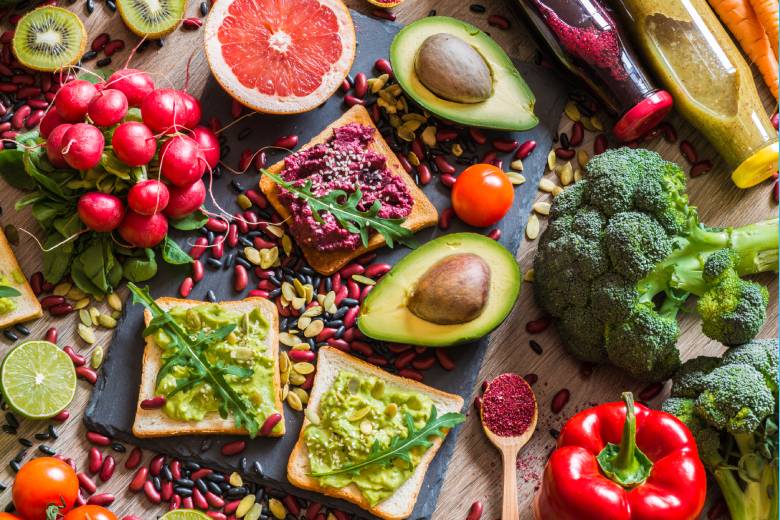Being a vegan, which involves avoiding all animal products, including meat, dairy, eggs, and other animal-derived ingredients, has a number of advantages.
IMPROVED HEALTH
Vegan diets are associated with a lower risk of heart disease, high blood pressure, type 2 diabetes, and certain cancers. Recent studies have found that 40% of children aged 6-11 already have high cholesterol levels, while high blood pressure rates are increasingly common. Approximately 70% of obese children have one or more risk factors for heart disease. Kids with type 2 diabetes face an increased risk of serious complications, like kidney failure, heart attack, and stroke. However, vegan diets are free of cholesterol and low in saturated fat, negating these problems.
Vegans help to preserve ecosystems and biodiversity by reducing demand for animal agriculture
- This is partly because plant-based diets contain less saturated fat and cholesterol.
- Because of the reduced calorie concentration and high fibre in the vegan diet, which promotes satiety, many people find it easier to maintain a healthy weight.
- Vegan diets are high in fibre, which promotes digestive health, regular bowel movements, and a lower risk of gastrointestinal problems.
- Plant-based diets are less prone to contain hazardous bacteria and pathogens that are regularly found in animal products.
- Vegan diets can be advantageous for people who are allergic or sensitive to common animal-derived foods such as dairy and eggs.
- Most children’s diets are severely lacking in healthful fruits and vegetables, getting less than their five-a-day – the vegan diet promotes the eating of fresh produce.
- According to some research, vegans may live longer, albeit this can also be influenced by other lifestyle factors such as exercise.
LOWER ENVIRONMENTAL IMPACT
- Plant-based food production has a lower carbon footprint than animal agriculture, which contributes considerably to greenhouse gas emissions.
- Vegan diets necessitate fewer resources such as water and land compared to diets focussed on animal food production.
ETHICAL CONSIDERATIONS
- Vegans often choose this way of life because of concern for animal welfare, believing that refraining from consuming animal products reduces demand for industries that endorse animal exploitation and suffering.

Vegan diets have been linked to a lower risk of heart disease, high blood pressure, type 2 diabetes, and certain cancers
CHOICE AND COST
- Adopting a vegan diet frequently results in a greater understanding of food options and encourages people to try a larger range of plant-based foods and cuisines.
- Vegan diets can be less expensive since basics such as grains, legumes, fruits, and vegetables are cheaper than animal products.
POSITIVE IMPACT ON ECOSYSTEMS
- Vegans help to preserve ecosystems and biodiversity by reducing demand for animal agriculture, as large-scale animal farming can lead to deforestation and habitat degradation.
While there are countless potential benefits to being a vegan, it’s also essential to formulate a balanced diet to ensure you’re meeting your nutritional requirements, particularly for nutrients such as vitamin B12, iron, calcium, and omega-3 fatty acids, which people usually derive from animal sources. Consultation with a healthcare expert or qualified dietitian can ensure you obtain the nutrients you need on a vegan diet.





